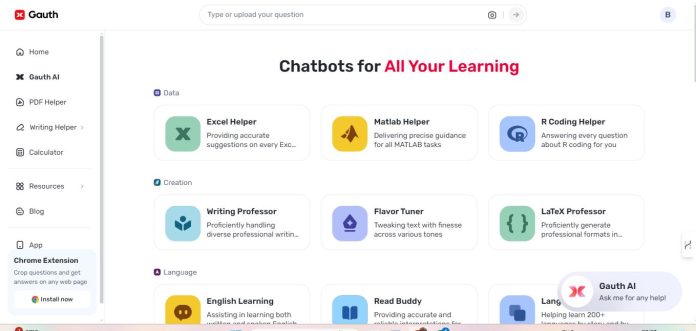Applying for graduate programs or college seems like a low GPA is a significant obstacle. Still, a personal statement is a great chance to highlight your abilities, potential, and unique experiences—qualities that make you a worthwhile applicant. Writing a strong personal statement will improve your application and enable you to stand out even with a GPA below ideal. A personal statement maker—like Gauth’s personal statement maker—which may help you clearly organize your ideas and assist you through the process—is one helpful tool to take into account while drafting this critical paper. We will discuss in this blog how you may utilize a personal statement to overcome a poor GPA and the reasons Gauth’s Personal Statement Maker is a great tool.
Critical Techniques for Rising Above a Low GPA Using a Personal Statement
Although it might be challenging to address a low GPA on your statement, with the correct strategy, it becomes a chance to show oneself as a driven and competent person. These are key ideas to give thought to:
Accept the low GPA, But Don’t Let It Define You
Start by addressing your GPA. Since admissions committees value openness, it’s crucial to recognize the discrepancy between their standards and your academic achievement. Still, try not to center your essay on any one subject. Instead, see it as a little setback on an otherwise great personal and intellectual path or as a struggle you have surmounted.
Emphasize Extracurricular Activities
Show that you have succeeded in other areas even if your GPA does not fairly represent your complete ability. Emphasize extracurricular activities, leadership positions, volunteer work, or internships that highlight your commitment, aptitudes, and capacity for juggling many tasks. This helps the admissions committee to see you as a candidate from a whole viewpoint.
Highlights Appropriate Knowledge and Experience
Share particular events that shaped your acquisition of critical abilities such as time management, communication, collaboration, or problem-solving. Emphasize the link if these events directly pertain to the program you are applying for. A poor GPA may be offset by showing how your outside-of-the-classroom activities have equipped you for success.
Describe Events Leading to the Low GPA (If Appropriate)
If there were particular difficulties—such as sickness, family problems, or other personal events—that lowered your GPA, mention them only fleetingly. The secret is to show how these elements affected your academic performance and also stress your learning, development, and overcoming of those obstacles. Make sure your justification serves as a background for comprehending your general path rather than as an excuse.
Highlight Academic Improvement
If your grades have shown improvement over time, particularly in the latter part of your studies, make sure to highlight this. Admissions officers are likely to be more forgiving of a low GPA if they can see an upward trend, as this suggests you’re capable of growth and adapting to academic challenges. Emphasize your determination to improve and the steps you’ve taken to enhance your academic performance.
Final Thoughts
A personal statement is a powerful tool for overcoming a low GPA. By acknowledging your academic shortcomings while focusing on your strengths, growth, and passion, you can show admissions committees that you’re more than just your GPA. Tools like Gauth’s Personal Statement Maker can provide valuable assistance in creating a personal statement that highlights your potential and aligns your experiences with the program you’re applying for. With a well-crafted personal statement, your GPA will no longer be the defining factor in your application—your determination, skills, and future aspirations will.











